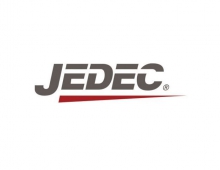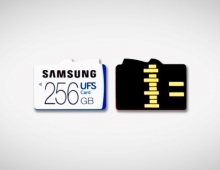
Universal Flash Storage Standard Coming Early Next Year
JEDEC Solid State Technology Association is moving towards publication of the next-generation flash memory standard, Universal Flash Storage (UFS).
Major progress achieved at recent JEDEC committee meetings provides visibility on the UFS interface, which has been designed to be the most advanced specification for flash memory-based storage in mobile devices such as smart phones and tablet computers. Developed to help address the demand for improved device performance, UFS has been designed to initially enable data throughput of 300 megabytes per second (MB/s), and support command queuing features to raise the random read/write speeds. The standard will be finalized for public use within the next three months, according to JEDEC's plans.
UFS will provide a dramatic change in architecture to increase performance while maintaining the benefits of low power consumption offered by existing solutions such as eMMC. The new standard will be based on a high speed serial interface targeting up to 2.9 gigabits per second (Gbps) with up-scalability to 5.8Gbps. UFS will initially offer three times the interface speed of the prevalent e�MMC interface, which is comparable to serial ATA-2. Moreover, UFS will offer the promise for significant reductions in device power consumption due to a low active power level and a near-zero idle power level.
The new standard also will support multiple commands with command queuing features and enabling a multi-thread programming paradigm, unlike conventional flash-based memory cards and embedded flash solutions such as eMMC, which process one command at a time, limiting random read/write access performance.
Speaking from a recent technical committee meeting in San Francisco, Mian Quddus, Chairman of JEDEC's JC-64 Committee for Flash Memory Modules, noted: "UFS as an industry-wide flash storage standard will address a number of market demands, including faster data access, lower power consumption, and improved performance for flash-based devices, benefiting device designers and consumers alike."
JEDEC will offer an overview of UFS at its 2011 International CES conference program.
UFS will provide a dramatic change in architecture to increase performance while maintaining the benefits of low power consumption offered by existing solutions such as eMMC. The new standard will be based on a high speed serial interface targeting up to 2.9 gigabits per second (Gbps) with up-scalability to 5.8Gbps. UFS will initially offer three times the interface speed of the prevalent e�MMC interface, which is comparable to serial ATA-2. Moreover, UFS will offer the promise for significant reductions in device power consumption due to a low active power level and a near-zero idle power level.
The new standard also will support multiple commands with command queuing features and enabling a multi-thread programming paradigm, unlike conventional flash-based memory cards and embedded flash solutions such as eMMC, which process one command at a time, limiting random read/write access performance.
Speaking from a recent technical committee meeting in San Francisco, Mian Quddus, Chairman of JEDEC's JC-64 Committee for Flash Memory Modules, noted: "UFS as an industry-wide flash storage standard will address a number of market demands, including faster data access, lower power consumption, and improved performance for flash-based devices, benefiting device designers and consumers alike."
JEDEC will offer an overview of UFS at its 2011 International CES conference program.





















